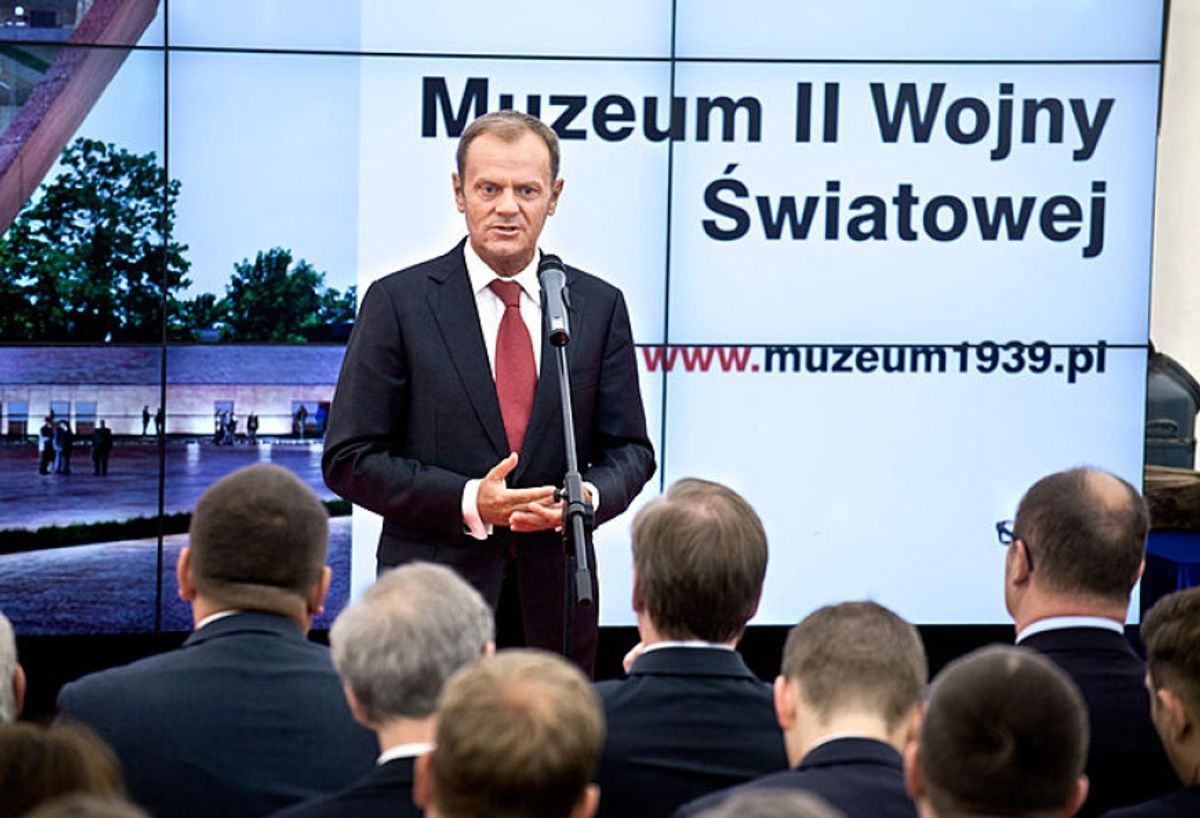Following a tumultuous year, the results of the October elections in Poland were met with a great sigh of relief in the country—and beyond. Eight years of the ruling right-wing Law and Justice party (PiS) had just ended making way for a coalition government led by Donald Tusk.
Since 2015, talk had been of little else but cultural despair and catastrophe, as historians, directors and cultural practitioners rattled by ultra-patriotic, ultra-Catholic sentiments were replaced by a platoon of cronies happy to have their futures safeguarded by the party.
Battle lines were drawn over projects such as Tusk’s Museum of the Second World War in Gdansk and the non-re-appointment of the director of the award-winning Polin Museum in Warsaw. These headline-grabbing rows were followed by others at key cultural institutions in Poland, which were largely interpreted as modern-day witch-hunts and overt political point-scoring. The overriding, and at times unfair, criticism levelled at the cultural ministry was that in over eight years in government, it was never able to switch from campaigning to governing mode, seeking bright lights and column inches over a backlog of urgent infrastructure priorities.
What’s next?
Putting these angry confrontations aside, if that is possible, the outgoing government’s cultural performance scorecard is not all bad. It invested in new cultural projects such as the Museum of Polish History in Warsaw, made significant new acquisitions, tracked down and returned from abroad valuable objects and paintings lost during the Second World War—not least The Lamentation of Christ (around 1538) by the School of Lucas Cranach the Elder from Stockholm and Mater Dolorosa and Ecce Homo by Dieric Bouts from Spain—and significantly supporting Ukraine on its cultural side.
The PiS government ran with a very sensible policy of encouraging as many exhibitions as possible to take place on Ukrainian subject matter in Poland, to protect and relieve some of the pressures on collections and salaries in Ukraine. They also supported substantial training programmes for Ukrainian museum professionals. Hopefully, that vital stream of work does not end but continues.
Now, the incoming coalition government promises to put a stop to pro-Catholic nonsense and restore a sense of cultural balance in its narrative to promote societal healing. But is that possible?
None of the coalition partners has so far put forward a cultural manifesto or cultural plan. With ageing infrastructure at almost all the national museums, and extremely poor wages across the board, we can expect the disenchantment of the sector to continue.
However, with the hope of a more independent-minded media, there is a sense of euphoria where everything seems possible.
This provides a perfect moment to create a compelling new vision for culture where the arts nurture a diversity of perspectives and expressions, and where they are valued for what they do best—lift the mind and the spirit.
It’s a perfect moment to break down the silos in the cultural sector in Poland to encourage greater cross-departmental collaboration and boost the sector’s capacity for innovation, risk-taking and creativity.
It’s also a perfect moment to re-envision the national portfolio of cultural institutions
It’s also a perfect moment to re-envision the national portfolio of cultural institutions and importantly, re-engage meaningfully with international partners.
As the sector pauses to grasp the magnitude of the change and to see what comes next, cultural institutions are recalibrating their programmes for a new world. Assuming major transitions, some directors must be packing up their belongings while others, previously shunted, hope for a return and even a promotion. One thing is clear, the landscape in Poland is rapidly changing towards more honest politics, better public dialogue, and more balanced media. And that’s all for the better.
• Jack Lohman is the chairman of the National Institute for Museums in Poland and the former director of the Museum of London


